|
This is my dynamic, frequently updated homepage. This is a NewsLog, also known as a WebLog or Blog.
Everything is evolving, so don't assume too much.
People to watch:
Adina Levin
Andrius Kulikauskas
Britt Blaser
Catherine Austin Fitts
Chris Corrigan
Clay Shirky
Dan Gillmor
Dave Pollard
David Allen
David Weinberger
Dewayne Mikkelson
Dina Mehta
Doc Searls
Elisabet Sahtouris
Elizabeth Lawley
Euan Semple
Florian Brody
Frank Patrick
Gen Kenai
George Dafermos
George Por
Graham Hancock
Greg Elin
Hazel Henderson
Heiner Benking
Inspector Lohman
Jean Houston
Jerry Michalski
Jim McGee
Jim Moore
John Abbe
John Perry Barlow
John Robb
Joi Ito
Jon Husband
Jon Lebkowsky
Jon Udell
Jonathan Peterson
Judith Meskill
Julian Elvé
Julie Solheim
Kevin Marks
Lawrence Lessig
Leif Smith
Letecia Layson
Lilia Efimova
Lisa Rein
Marc Canter
Mark Oeltjenbruns
Mark Pilgrim
Mark Woods
Martin Dugage
Martin Roell
Mary Forest
Matt Mower
Max Sandor
Michael Fagan
Mike Owens
Mikel Maron
Mitch Kapor
Mitch Ratcliffe
Nathalie dArbeloff
Netron
Noam Chomsky
Paul Hughes
Peter Kaminski
Phil Wolff
Philippe Beaudoin
Ray Ozzie
Raymond Powers
Rebecca Blood
Roger Eaton
Roland Tanglao
Ross Mayfield
Scott Lemon
Sebastian Fiedler
Sebastien Paquet
Skip Lancaster
Spike Hall
Steven Johnson
Stuart Henshall
Thomas Burg
Thomas Madsen-Mygdal
Thomas Nicholls
Timothy Wilken
Todd Suomela
Tom Atlee
Tom Munnecke
Tom Tomorrow
Ton Zijlstra
Lionel Bruel
Loic Le Meur
Nancy White
Mark Frazier
Merlin Silk
Robert Paterson
Colby Stuart
Nova Spivack
Dan Brickley
Ariane Kiss
Vanessa Miemis
Bernd Nurnberger
Sites to watch:
Edge
Junto
Absara
Rhizome
Nanodot
HeadMap
Openworld
FutureHi
Imaginify
Do No Harm
BoingBoing
Smart Mobs
Webcamorama
MetaFilter
NotThisBody
Disinfopedia
YES Magazine
Collective Web
WorldChanging
Disinformation
Escape Velocity
Space Collective
Friendly Favors
Emergent by Design
Independent Media
Global Ideas Bank
Forbidden Science
Greater Democracy
ThoughtsOnThinking
Disclosure Project
Explorers Foundation
Manufacturing Dissent
Collective Intelligence
Action without borders
Free Expression Network
Co-intelligence Institute
Electronic Frontier Foundation
French:
Emmanuelle
Manur
Elanceur
Loeil de Mouche
IokanaaN
Blog d'Or
Le Petit Calepin
GeeBlog
Absara
Guillaume Beuvelot
Ming Chau
Serge Levan
Jean Michel Billaut
C'est pas Mécanique

I live in Toulouse, France where the time now is:
01:06
Unique Readers:

Primarily
Public Domain
Everything I've written here is dedicated to the
Public Domain.

The quotes from other people's writings, and the pictures used might or might not be copyrighted, but are considered fair use. Thus, overall, this weblog could best be described as being:
Primarily Public Domain. |
Syndication:
 ![Validate my RSS feed [Valid RSS]](http://www.newciv.org/pic/valid-rss.png)
|
| Tuesday, December 9, 2003 |  |
|
|
|
One could say that there are several different kinds of logic, which are differentiated by the number of possibilities one is considering at any one time.
 You know, of course, two-valued logic. That is black and white thinking. It is when one considers that there are only two options, and one needs to choose between them. You're either for or against. You either support freedom, or you're a terrorist. You're either a christian or a heathen. You're either for or against abortion. A person who uses two-valued logic does merely need to decide whether to pick the 'good' option or the 'bad' option, and the only other thinking involved is to try to match the options with previously known 'good' or 'bad' labels. "Aha, he uses bad words, so what he's saying is of course bad". You know, of course, two-valued logic. That is black and white thinking. It is when one considers that there are only two options, and one needs to choose between them. You're either for or against. You either support freedom, or you're a terrorist. You're either a christian or a heathen. You're either for or against abortion. A person who uses two-valued logic does merely need to decide whether to pick the 'good' option or the 'bad' option, and the only other thinking involved is to try to match the options with previously known 'good' or 'bad' labels. "Aha, he uses bad words, so what he's saying is of course bad".
 There can also be three-valued logic. That's when there is Yes, No and Maybe. That is, the answer is either a clear Yes (good), a clear No (bad), or we just don't have enough information to decide yet, which is a Maybe. That can of course be considered a little more advanced than two-valued logic, as everything doesn't just get categorized at first glance. But not much better. There can also be three-valued logic. That's when there is Yes, No and Maybe. That is, the answer is either a clear Yes (good), a clear No (bad), or we just don't have enough information to decide yet, which is a Maybe. That can of course be considered a little more advanced than two-valued logic, as everything doesn't just get categorized at first glance. But not much better.
 More simple than either of those is one-valued logic. That is when there's not even any need for or faculty for evaluating things. Things are just the way they are, usually because The Big Book says so, or The Big Guru, or The Big Government. And if they didn't mention it, it of course doesn't exist. Generally it is if you consider yourself so powerless that you just have to accept whatever comes along, from the only direction you're looking in. Like, if you've latched on to a literal interpretation of some kind of religion, and you believe that the decision making process is entirely out of your hands. Oh, nothing wrong in believing in bigger things, but here we're talking about whether you think or not. More simple than either of those is one-valued logic. That is when there's not even any need for or faculty for evaluating things. Things are just the way they are, usually because The Big Book says so, or The Big Guru, or The Big Government. And if they didn't mention it, it of course doesn't exist. Generally it is if you consider yourself so powerless that you just have to accept whatever comes along, from the only direction you're looking in. Like, if you've latched on to a literal interpretation of some kind of religion, and you believe that the decision making process is entirely out of your hands. Oh, nothing wrong in believing in bigger things, but here we're talking about whether you think or not.
If you predominantly use any of those three approaches in your life, you're somewhat less than sane. Or, more kindly, you are likely to make decisions that don't work very well for you, and you might not be able to figure out why.
 Another, undeniably more effective, kind of thinking is what we can call infinite valued logic. Essentially that means that any situation, any problem, consists of many different factors. And each of those factors might be pegged on a scale with an infinite number of gradations, in relation to some particular measure or outcome. And to make a good decision, you'd need to relate and weight all these factors together. Another, undeniably more effective, kind of thinking is what we can call infinite valued logic. Essentially that means that any situation, any problem, consists of many different factors. And each of those factors might be pegged on a scale with an infinite number of gradations, in relation to some particular measure or outcome. And to make a good decision, you'd need to relate and weight all these factors together.
Infinite valued logic will maybe appear less slick and convenient and forceful at first. Essentially it implies that the answer is "It depends" until you've examined all the factors involved. Including who do they apply to, and what are the exact circumstances.
Is smoking bad for me? Is extra-marital sex wrong? What is the Republican Party good for? Should I become a buddhist? Should I eat less cheese?
If you had the answer ready for any of those, without having to think about it, chances are you didn't really examine the factors involved in the questions, and you probably didn't look at how these questions related to me and my particular circumstances.
Take smoking. There are certain negative health influences. And there are certain positive things smoking might do for a person. Both of those are different for different people. What exactly are they, specifically for this person? And how much smoking are we talking about? A cigar every evening, or 3 packs of unfiltered cigarettes per day? And who are we talking about? A soldier in war who's being shot at every day, or an accountant sitting by a desk? What would he replace smoking with if he didn't have that? And what else does that person consume on a daily basis? Is he happy about it or not? All of those are factors that have a whole range of possible answers. Some of them will support the person's decision to smoke, and some represent reasons not to. You'd have to add all of it up to make the most rational decision.
You could do that very mechanically. Write down all the factors involved and peg each one on a scale between 0 and 10, or between -10 and +10, in relation to a particular outcome. And then you add the numbers up and see what you get. However, it doesn't at all have to be done that way. It doesn't even have to be done terribly explicitly. Good decision makers naturally do this internally. They are conscious of most of the factors involved, they rule out their own preconceived biases, they pay attention to the exact circumstances, and they might come up with an answer that just seems or feels or sounds right, without necessarily having articulated exactly why.
In brief, it is about avoiding categorizing things in advance. Avoiding making decisions based on abstract generalizations one carries around. It is about noticing what is actually going on right here and now, what the actual components and influences are, and responding rationally to what is in front of you.
For more on infinite-valued logic, check out Alfred Korzybski's General Semantics. See, for example, here, here, or here
[ Patterns | 2003-12-09 10:18 | | PermaLink ] More >
|
|
|
|
 I just had a chat, half in French, with Roland. And then he says "Moi non plus". And, hey, since I'm learning French, and the web is such an exquisite philosophical time waster, it leads me off on the 1/2 hour wild goose chase of clearing up what that really meant in that song, you know. The steamy "Je t'aime (moi non plus)" with Serge Gainsbourg & Jane Birkin. Which was sort of interesting, so I might as well relate it here. I just had a chat, half in French, with Roland. And then he says "Moi non plus". And, hey, since I'm learning French, and the web is such an exquisite philosophical time waster, it leads me off on the 1/2 hour wild goose chase of clearing up what that really meant in that song, you know. The steamy "Je t'aime (moi non plus)" with Serge Gainsbourg & Jane Birkin. Which was sort of interesting, so I might as well relate it here."Je t'aime
oh, oui je t'aime!
moi non plus
oh, mon amour...
comme la vague irrésolu
je vais je vais et je viens
entre tes reins
et je
me retiens-je t'aime je t'aime
oh, oui je t'aime !
moi non plus
oh mon amour...
tu es la vague, moi l'île nue
tu va et tu viens
entre mes reins
tu vas et tu viens
entre mes reins
et je
te rejoins- je t'aime je t'aime
moi non plus
oh, mon amour..." ..and so forth. Oooh, I'm blushing. (Well, not really). A full translation is below, even though it isn't a perfect one. And, indeed, the title is somewhat non-sensical. It means "I love you. Neither do I." or "Nor do I". Which isn't entirely correct. It is poetic license. And we'll have to hear from Serge Gainsbourg what he really meant by that:"I love women as an object, the beautiful women, the mannequins, the models. This is the inner painter in me. I never tell them I love them. Je t'aime... moi non plus (I love you... me neither) expresses erotism overcoming sentimentalism… So many songs about romantic and sentimental love, encounters, discoveries, jealousy, illusions, desillusions, betrayals, remorses, hatred, etc... Then why not devote a song to a sort of love much more current these days: physical love? "Je t'aime" isn't an obscene song, it's very reasonable to me, and fills this gap. Its explanation is that girls say "I love you" during sex, and the man with their ridiculous virility doesn't believe them. They think the girls only say it as a result of enjoyment, of pleasure. I guess I believe the girls, or maybe that's a result of my fear. But that's also an aesthetic step, a search of absoluteness" Leave it to the French to know how to weave together outrageousness, philosophy, eroticism and poetry. I think I get it. Moi non plus.
[ Culture | 2003-12-09 16:58 | | PermaLink ] More >
|
|
| Monday, December 8, 2003 |  |
|
|
|
 Americans in Toulouse are frequently arranging these historical walking tours lead by Gilbert. I've been on a few and it is is always interesting, even if it is on the local cemetary, or just looking at some old houses. Gilbert is a historian who knows his stuff, like the dates and names of apparently everything and everyone who was reasonably important within the last 1000 years or so in Toulouse. Where most people just walk down the street without thinking much about it, he seems to have a lot to say about every other house. Here he dragged us into a backyard of a house where a well-known manufacturer of statues was living. The morning was spent in the St.Cyprien quarter, close to where we live. Since it is on the left bank of the river, away from the rest of the city, that is where they first placed a hospital, so they could drag people over there who were suffering from the plague. And it was cheap land for an assortment of different monasteries and convents. Americans in Toulouse are frequently arranging these historical walking tours lead by Gilbert. I've been on a few and it is is always interesting, even if it is on the local cemetary, or just looking at some old houses. Gilbert is a historian who knows his stuff, like the dates and names of apparently everything and everyone who was reasonably important within the last 1000 years or so in Toulouse. Where most people just walk down the street without thinking much about it, he seems to have a lot to say about every other house. Here he dragged us into a backyard of a house where a well-known manufacturer of statues was living. The morning was spent in the St.Cyprien quarter, close to where we live. Since it is on the left bank of the river, away from the rest of the city, that is where they first placed a hospital, so they could drag people over there who were suffering from the plague. And it was cheap land for an assortment of different monasteries and convents.
[ History | 2003-12-08 07:41 | | PermaLink ] More >
|
|
|
|
 In 1927 as Buckminster Fuller was standing at the edge of Lake Michigan, intent on committing suicide by throwing himself into the dark, cold water, he instead hesitated and started thinking about what meaning his life could have. For the first time doing some thinking he felt was his own. And he asked himself what one penniless little human could possibly do for humanity that the most powerful governments and corporations couldn't do better. In 1927 as Buckminster Fuller was standing at the edge of Lake Michigan, intent on committing suicide by throwing himself into the dark, cold water, he instead hesitated and started thinking about what meaning his life could have. For the first time doing some thinking he felt was his own. And he asked himself what one penniless little human could possibly do for humanity that the most powerful governments and corporations couldn't do better."Answering myself, I said: "The individual can take initiatives without anyone's permission."
I told myself: "You do not have the right to eliminate yourself, you do not belong to you. You belong to the universe. The significance of you will forever remain obscure to you, but you may assume that you are fulfilling your significance if you apply yourself to converting all your experience to the highest advantage of others." So I vowed to keep myself alive, but only if I would never use me again for just me - each one of us is born of two, and we really belong to each other. I vowed to do my own thinking instead of trying to accommodate everyone else's opinions, credos and theories. I vowed to apply my inventory of experiences to the solving of problems that affect everyone aboard planet earth.
I didn't want to waste a second, so I slept that way that certain animals sleep: lying down as soon as I was tired, sleeping a half hour every six hours. I also decided to hold a moratorium on speech. It was very tough on my wife, but for two years in that Chicago tenement I didn't allow myself to use words. I wanted to force myself back to the point where I could understand what I was thinking.
I decided to forget about earning a living. It seemed to me that humans are honey-money bees, doing the right things for the wrong reasons, just as the bee pollinates the flower.
Released from the idea of earning a living, I was able to address problems in the biggest way. I decided to commit myself to the invention and development of physical artifacts to reform the environment. I decided that a plurality of such artifacts had the potential to evoke humanity's most intelligent, interconsiderate qualities. It became obvious that if I worked always and only for all humanity, I would be optimally effective. I'd be doing what nature wanted me to do, and nature would literally support me." Now, get that. One individual working for all of humanity. Applying all of your energy and intelligence to making the biggest possible positive difference for the whole world. But doing it completely on your own premises. Not sacrificing yourself to the will of some homogonous group. Not just trying to tweak the best advantage for yourself out of life. No, doing the very best you can, in the way that only you can know how to do - not for yourself, not for any particular group, but for all of us together. There's nothing quite as powerful as that. It is a profound statement, a profound intention. And not just some idealistic do-good kind of thing to say. It is maybe the most sensible thing to do.
Many years later, two years before he died, Bucky wrote a book called "Critical Path" in which he summarized much of what he had learned. This is part of what he wrote in the foreword:"My reasons for writing this book are fourfold:
(A) Because I am convinced that human knowledge by others of what this book has to say is essential to human survival.
(B) Because of my driving conviction that all of humanity is in peril of extinction if each one of us does not dare, now and henceforth always to tell only the truth, and all the truth, and to do so promptly—right now.
(C) Because I am convinced that humanity’s fitness for continuance in the cosmic scheme no longer depends on the validity of political, religious, economic, or social organizations, which altogether heretofore have been assumed to represent the many.
(D) Because, contrary to (C), I am convinced that human continuance now depends entirely upon:
(1) The intuitive wisdom of each and every individual.
(2) The individual’s comprehensive informedness.
(3) The individual’s integrity of speaking and acting only on the individual’s own within-self-intuited and reasoned initiative.
(4) The individual’s joining action with others, as motivated only by the individually conceived consequences of so doing.
(5) And, the individual’s never-joining action with others, as motivated only by crowd-engendered emotionalism, or by a sense of the crowd’s power to overwhelm, or in fear of holding to the course indicated by one’s own intellectual convictions." Notice that it is at first not always easy to read what he wrote. After his two years of self-imposed silence he then only wrote and spoke in very precise statements that pack quite some wisdom into each sentence, but which uses many made-up words. However, if you get used to it, you'll appreciate how clearly the man was saying things.
OK, so again he's talking about how we might make the world work optimally for all of us. First of all how we might possibly save humankind from imminent extinction. Not by some political or religious ideology. Not through any organization that claims to be working on such big matters. No, through well-informed individuals, who come to realize what they're here to do, and who go and do it, in accordance with their own integrity and intuition. And such individuals then freely joining their actions with the actions of others.
I went and picked those quotes out because I was thinking about the principles of the open source movement, and about how I better can do something useful in the world. Notice that most people who're developing open source software are following the principles outlined above, even if the individuals doing so might not at all resonate with the lofty aims described. But it ads up to the same thing. If you develop some little software utility just to scratch your own personal itch, but you actually put it out into the world for others to freely use, and it turns out that it is useful for others too - you're doing exactly that. You, as an individual, are guiding your actions by your own intuition and decisions, not taking direction from any authoritative group outside yourself, doing it entirely you own way, and you give your work to the world with few or no strings attached.
If the world just worked a few percent more like that, the tides would turn. If more works were put into the world by people who did exactly what they think is needed, without caring whether it pays or whether power groups might agree or not. If more big and small problems were solved for all of us by smart people doing whatever they damned well felt like. Little by little, the pool of tools and resources supporting humanity is growing. And, one by one, organizations that hold on to power for its own sake, for their own sake, or for the sake of some dried-up idealistic principles - will fall apart and fade away. Just because they don't work as well as a network of free people who serve the world. They never have, but it is not beginning to be clear before now.
Anyway, I will be searching for a better understanding of what it means to be working in that way. Indeed, it doesn't have to be something big and noble and idealistic at all. It can be simply doing little useful things that need to be done, and making them as available as possible,
[ Inspiration | 2003-12-08 14:43 | | PermaLink ] More >
|
|
|
|
 Andy Borrows' Older and Growing blog is always a good read. In particular, Andy has a compellingly authentic voice. Andy Borrows' Older and Growing blog is always a good read. In particular, Andy has a compellingly authentic voice."I’ve been feeling oddly ill-at-ease for the last week or so, and couldn’t figure out why. Disconnected, running on autopilot, remote from experience; definitely a few cards short of a full deck. I’ve been bouncing half-formed ideas around my head trying to figure out the cause of the malaise; I started writing blog posts several times but abandoned them every time - the words kept falling into one of a number of stereotyped patterns, running away with themselves, finding their own course like heavy rain falling on a dusty hillside.
But I think the penny has finally dropped. It’s this blogging business, or rather the effects it has.
I had grown used to living in a rut. It may not have been perfect, but after a while you don’t notice the imperfections; it’s just not quite uncomfortable enough to warrant changing anything. Hankering after things that are out of reach only makes you dissatisfied, so after a while you build a high wall so that you can’t see them any more and that way you don’t get so dissatisfied. You don’t notice the rut, because everyone living your side of the wall has their own rut. Life goes on, day follows day and we all get a little older, a little more sure that our reality only extends as far as that wall, but since we do those things together, no-one really notices. And so the wall gets a little higher, a little thicker.
But then along comes blogging and it starts knocking holes in that wall, through which you can glimpse exquisitely tantalising thumbnails of the view on the other side; it creates links, threads that pass through those holes and start to exert a tug that’s almost physical. People, places, ideas, challenges – suddenly they’re all around in glorious technicolour and by contrast this side of the wall is grey, shabby, lifeless, dull.
So what’s been knocking those holes?" See, how many of us wait to write and speak until we have something figured out, until we have something smart to impart to the world. But the best stuff in life is often the reality of where we are right now, halfway through a lot of things we haven't figured out, and which we might or might not. And when we embrace that, and are able to be in it and talk about it, revelations tend to show up. Like, read on in Andy's post.
[ Inspiration | 2003-12-08 15:59 | | PermaLink ] More >
|
|
| Friday, December 5, 2003 |  |
|
|
|
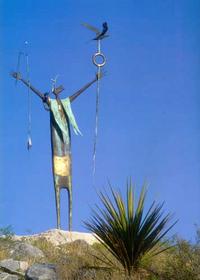 Tom Atlee wrote a wonderful article about diversity. Tom is always an astute observer and thinker and collector of anything that might possibly help groups of people work better together, and tap their own co-intelligence. Tom Atlee wrote a wonderful article about diversity. Tom is always an astute observer and thinker and collector of anything that might possibly help groups of people work better together, and tap their own co-intelligence.Diversity makes whole systems possible: You need diverse parts to make a bicycle. A barrel of handlebars won't do the job. Likewise, an ecosystem is made up of diverse species, making up complex food chains and cycles that keep the whole thing going.
Relationship, community, interdependence, mutuality -- even the entire economic system with all its different jobs and products and services and forms of exchange -- are all totally dependent on diversity.
As is freedom. Uniqueness is the inside face of diversity. If I want to "be myself" and "do things my way," I have to live in a culture that respects diversity. The more free a society, the more diversity it tends to generate. And that diversity tends to beget even more diversity as diverse people, stimulated by each other, find new ways to be unique...
Diversity is key to resilience. "Diversify," say the investment counsellors. If one variety fails, life can switch to another. This is the principle behind biodiversity: If all our corn is genetically identical, and a virulent bug attacks it, it may all be killed off. If our corn is genetically diverse, then some of it will succumb and some will survive. The survivors will reproduce, resulting in greater resistance to that bug. (Of course this natural selection process is busily at work on the bugs, too, so the dance goes on. But for any given species, its diversity -- and the diversity of the organisms and systems it depends on -- is a vital factor in its survival.)
If everyone depends on one mega-corporation for a monopolized product... If everyone uses the same operating system for their computers... If all the production facilities use the single most efficient form of production... If all the ferries are put out of business so all traffic must go on the bridges... If we all get our electricity from a single grid with no distributed local energy sources.... we make ourselves vulnerable to the collapse of the single things we all depend on. This is what freaked people out about Y2K, that it would knock out some basic central systems, triggering a catastrophic domino effect. This is a nightmare for terrorist emergency response planners, that terrorists could knock out some vital link in some technological system that we all depend on, for which there is no good alternative. Alternatives, diversity -- even redundance -- are key to resilience.
Diversity has many other roles, as well. Perhaps the most important is that it makes synergy dynamic. Three metal bars welded together into a triangle are stronger (more synergistic) than three metal bars welded into any other shape. That's why engineers use steel triangles to build bridges and industrial support structures. But that's static synergy. If you want to see dynamic synergy, check out the conversations between scientists like Albert Einstein and Neils Bohr, or any other people passionate about a subject, who have different views but share a dedication to finding greater truth. Since each sees things from a different perspective, they can see each other's blind spots and evolve together into bigger, clearer ways of seeing the world.
Or you can simply contemplate the synergy between your lungs and your heart, or between oxygen-breathing animals and carbon-dioxide breathing plants, or between musicians in a jazz combo, jamming... The synergy in all these cases is dynamic and alive, thanks to the diverse participants in the dance. There are possible negatives to diversity too, of course. At least apparent negatives. It is usually our differences that we use to oppress each other. So, what do we do about that? How do we focus on the healthy, creative diversity?Ultimately the creative use of diversity involves having some kind of common ground to stand on while exploring difficult differences. One of the most dependable forms of common ground is what I sometimes call our "core commons" -- that place in all of us that is rooted in our shared humanity, our shared aliveness, our shared spirit.
Whether through our own personal development, through good group process (helped perhaps by facilitators or mediators), or through fortunate religious or cultural conditioning, we may be able to see each other through our differences to the depths of our commonality. When this is done in healthy ways, it isn't done to deny our differences, but to maintain heartful, mindful pathways between us as we seek to understand our differences and their role in what comes next. We want our differences to make us powerful partners, not aliens and enemies.
Other forms of common ground include shared goals, visions, values, passions and purposes -- or shared crises that render all other factors miniscule in comparison. Shared history, culture and language can make it much easier to work through differences, as can being together in the same place. Nothing I can add, really. Read the whole article.
[ Organization | 2003-12-05 06:32 | | PermaLink ] More >
|
|
| Tuesday, December 2, 2003 |  |
|
|
|
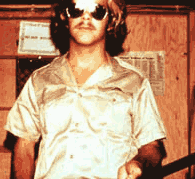 I had certainly heard about it before, but I didn't realize there were a website before Seb mentioned it. The Stanford Prison Experiment in 1971 is one of the more enlightening and frightening demonstrations of how easily humans accept a fake reality as real, and act accordingly. College students volunteered to the experiment of acting as prisoners and prison guards in a two week experiment. The experiment had to be stopped after six days because it became way too real. 'Guards' turned into sadistic slave masters, 'prisoners' accepted their humiliations and had psychological breakdowns. Even the 'prisoners' parents, outside helpers like priests and lawyers, and even the psychologists running the experiment - all started treating it as reality and acting accordingly. The experiment was stopped because it was going so far that there was fear of people's health and sanity. But also because, for the first time, somebody walked in (another psychologist) and said "Hey, you have to stop this, you can't treat people like this". Until then everybody, including around 50 outsiders, had just gone along with it, and adopted the premises of the situation, even though they all knew that they weren't 'real'. I had certainly heard about it before, but I didn't realize there were a website before Seb mentioned it. The Stanford Prison Experiment in 1971 is one of the more enlightening and frightening demonstrations of how easily humans accept a fake reality as real, and act accordingly. College students volunteered to the experiment of acting as prisoners and prison guards in a two week experiment. The experiment had to be stopped after six days because it became way too real. 'Guards' turned into sadistic slave masters, 'prisoners' accepted their humiliations and had psychological breakdowns. Even the 'prisoners' parents, outside helpers like priests and lawyers, and even the psychologists running the experiment - all started treating it as reality and acting accordingly. The experiment was stopped because it was going so far that there was fear of people's health and sanity. But also because, for the first time, somebody walked in (another psychologist) and said "Hey, you have to stop this, you can't treat people like this". Until then everybody, including around 50 outsiders, had just gone along with it, and adopted the premises of the situation, even though they all knew that they weren't 'real'.Less than 36 hours into the experiment, Prisoner #8612 began suffering from acute emotional disturbance, disorganized thinking, uncontrollable crying, and rage. In spite of all of this, we had already come to think so much like prison authorities that we thought he was trying to "con" us -- to fool us into releasing him.
When our primary prison consultant interviewed Prisoner #8612, the consultant chided him for being so weak, and told him what kind of abuse he could expect from the guards and the prisoners if he were in San Quentin Prison. #8612 was then given the offer of becoming an informant in exchange for no further guard harassment. He was told to think it over.
During the next count, Prisoner #8612 told other prisoners, "You can't leave. You can't quit." That sent a chilling message and heightened their sense of really being imprisoned. #8612 then began to act "crazy," to scream, to curse, to go into a rage that seemed out of control. It took quite a while before we became convinced that he was really suffering and that we had to release him. This is all rather horrible stuff, but very illuminating about our human tendency to be 'normal' and do what we think the circumstances demand of us. The experience of those volunteer prisoners in 1971 is, unfortunately, also very comparable to the experience that millions of real prisoners go through. And nobody's going to walk by and stop that experiment because it isn't right to treat people that way. Two million people are in prison in the United States.
Ironically, it was less than a month after the Stanford experiment, that the infamous riot broke out in Attica Prison in New York. The prisoners were demanding basic human rights. Instead New York's governor, Nelson Rockefeller, sent in the National Guard to take the prison by force and many guards and prisoners were killed.
[ Patterns | 2003-12-02 09:19 | | PermaLink ] More >
|
|
|
|
 An article: "How does IM usage compare to that of other communication media?", describes a study of IM (Instant Messenger) usage. IM is often accused of being a big time waster for employees who sit and chat all day about nothing while they should be working. But that isn't really my experience. To me IM is a very efficient and business-oriented tool. I rarely do smalltalk over IM. But for years I've related with business clients almost exclusively though IM. OK, when I last had a job-job, I used IM for more social stuff, for sending out jokes and so forth. But my experience there too was that it allowed me to better concentrate on work, and that it allowed a social dimension of a workplace to happen at the same time, rather than only in coffee breaks. Anyway, these are some of the findings of the study described in the article: An article: "How does IM usage compare to that of other communication media?", describes a study of IM (Instant Messenger) usage. IM is often accused of being a big time waster for employees who sit and chat all day about nothing while they should be working. But that isn't really my experience. To me IM is a very efficient and business-oriented tool. I rarely do smalltalk over IM. But for years I've related with business clients almost exclusively though IM. OK, when I last had a job-job, I used IM for more social stuff, for sending out jokes and so forth. But my experience there too was that it allowed me to better concentrate on work, and that it allowed a social dimension of a workplace to happen at the same time, rather than only in coffee breaks. Anyway, these are some of the findings of the study described in the article:Although a common impression of IM is that it's used primarily for simple questions and quick clarifications, we found that was true only about 28 percent of the time.
Despite the perception that IM is commonly used for social purposes in the workplace, we found that was rarely the case. Only 13 percent of the conversations we monitored included any personal topics whatsoever, and only 6.4 percent were exclusively personal.
Concerns that IM might distract people from their work proved to be unfounded. The majority of the workplace IM conversations we observed, 62 percent, focused entirely on work-related matters.
Independent of function, we discovered that 23.6 percent of our study group's "conversations" consisted of one person sending one or more messages without getting a response within five minutes. Although this represents a sizeable percentage of the conversations, it's low in comparison to estimates of unanswered phone calls (62 percent) and failed attempts to start impromptu desktop video conferences (75 percent).
Many articles in the popular media and in journals mention that people frequently switch from IM to another form of communication, such as phone or face-to-face, particularly when conversations become complex. We found that media switching was not common, occurring only 16 percent of the time, and they almost never (3 percent) happened because the conversation became too difficult to conduct via text.
Not all of our findings contradicted popular notions of IM use. For example, IM conversations are thought to be quick, and indeed the conversations we monitored lasted about 4.5 minutes. That is also consistent with many other types of impromptu communications (whether face-to-face, over the phone, or by way of desktop video conferencing). Also, IM users are commonly reported to switch frequently between IM conversations and other desktop activities, and we found that to be the case. In 85 percent of the conversations, at least one user multitasked during the IM interaction. But perhaps surprisingly, only 23 percent of users carried on multiple simultaneous IM sessions—and only infrequently at that.
[ Organization | 2003-12-02 11:30 | | PermaLink ] More >
|
|
| Monday, December 1, 2003 |  |
|
|
|
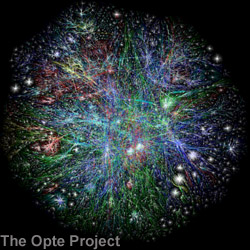 The Opte Project is mapping the Internet and creating visual maps. Here's one from last week. 5 million edges and has an estimated 50 million hop count. I'm not sure exactly what that means. They have a feature, turned off right now unfortunately, which would allow you to find your own IP address on the map. "You are HERE". The Opte Project is mapping the Internet and creating visual maps. Here's one from last week. 5 million edges and has an estimated 50 million hop count. I'm not sure exactly what that means. They have a feature, turned off right now unfortunately, which would allow you to find your own IP address on the map. "You are HERE".
Hm, it looks kind of alive to me. Like a cell or a galaxy.
[ Culture | 2003-12-01 06:16 | | PermaLink ] More >
|
|
|
|
John Abbe mentions an article from the mid-80s: Nonviolent Warfare: Alternative to Armageddon?The year is 2010. Russian tanks swarm into a small country in Western Europe, spearheading an invasion by Warsaw Pact troops. But this invasion is unusual because no shots are fired. Instead, the Communist soldiers are greeted by shuttered windows and deserted streets. The nation being overrun phased out its military years ago and now relies on a carefully planned program of civilian nonviolent resistance to deter its enemies. Immediately, clandestine government radio stations broadcast a call for a general strike to oppose the invaders. Factories close down, key machine parts are "lost," industrial experts go into exile, and normal channels of communication and transportation within the country are disrupted.
In an effort to get the country moving again, the Soviets round up government officials and tell them to end the strike or face execution. The few leaders that collaborate are socially ostracized. Meanwhile, an underground leadership begins to function and the economic shutdown continues unabated. Frustrated, the Soviets blunder by ordering troops to shoot at nonviolent demonstrators. As a result, the troops become restless, morale problems develop, and desertions begin to occur. Finally, realizing that the costs of continued occupation outweigh any possible benefits, the Soviets withdraw. OK, its premises are a bit outdated, but you get the point. It is based on the book "The Politics of Nonviolent Action". Essentially it is like "What if there were a war and nobody showed up?". Or rather, what if nobody cooperated with any invading force, but instead provided concerted non-violent resistance. Of course that doesn't stop bombs and tanks, but it might remove the incentive for trying to take over another country. You wouldn't steal a car if you knew it would impossible to drive it. It is not all stupid, since the majority of wars have an economic incentive. Somebody wants to get their hands on some other people's stuff and want to control those people. If they can't, there would be that much less point to it.
Of course, if nobody cooperated in being an army in the first place, and there were nobody willing to make bombs, the whole thing wouldn't happen at all.
[ Politics | 2003-12-01 06:16 | 0 comments | PermaLink ]
|
|
|
|
New Scientist reports that a small British company, TriStem, seems to have found a way of turning human white blood cells into a "stem-cell-like" state, which then allows them to be used by the body to repair and rebuild all sorts of problems in the human body. Which, if true, would create a revolution in the field of medicine. Traditional scientists are sceptical, because the research hasn't been presented through the normal channels, and the people in charge of it don't have quite the right credentials.
[ Science | 2003-12-01 15:27 | | PermaLink ] More >
|
|
| Sunday, November 30, 2003 |  |
|
|
|
 Interesting article from 1997 by Howard Bloom about how our reality is formed and manipulated by what we hear, what we remember, what other people seem to believe, etc. Not just that our memories and peer pressure is influencing and coloring how we see the world. No, much more tangible than that. We physically perceive that which we assume we'll perceive and that which we've been conditioned to perceive. I particularly find experiments such as these fascinating: Interesting article from 1997 by Howard Bloom about how our reality is formed and manipulated by what we hear, what we remember, what other people seem to believe, etc. Not just that our memories and peer pressure is influencing and coloring how we see the world. No, much more tangible than that. We physically perceive that which we assume we'll perceive and that which we've been conditioned to perceive. I particularly find experiments such as these fascinating:In the late 1970s, Loftus performed a series of key experiments. In a typical example, she showed college students a moving picture of a traffic accident, then asked after the film, "How fast was the white sports car going when it passed the barn while traveling along the country road." Several days later when witnesses to the film were quizzed about what they'd seen, 17% were sure they'd spied a barn, though there weren't any buildings in the film at all. In a related experiment subjects were shown a collision between a bicycle and an auto driven by a brunette, then afterwards heard questions about the "blond" at the steering wheel. Not only did they remember the non-existent blond vividly, but when they were shown the sequence a second time, they had a hard time believing that it was the same incident they now recalled so graphically. One subject said, "It's really strange because I still have the blond girl's face in my mind and it doesn't correspond to her [pointing to the woman on the videotape]...It was really weird." In visual memory, Loftus concluded that hints leaked to us by fellow humans are more important than the scene whose details actually reach our eyes.[...]
It was 1956 when Solomon Asch published a classic series of experiments in which he and his colleagues showed cards with lines of different lengths to clusters of their students. Two lines were exactly the same size and two were clearly not - the mavericks stuck out like basketball players at a convention for the vertically handicapped. During a typical experimental run, the researchers asked nine volunteers to claim that two badly mismatched lines were actually the same, and that the actual twin was a total misfit. Now came the nefarious part. The researchers ushered a naive student into the room with the collaborators and gave him the impression that the crowd already there knew just as little as he did about what was going on. Then a white-coated psychologist passed the cards around. One by one he asked the pre-drilled shills to announce out loud which lines were alike. Each dutifully declared that two terribly unlike lines were perfect twins. By the time the scientist prodded the unsuspecting newcomer to pronounce judgement, he usually went along with the bogus acclamation of the crowd. Asch ran the experiment over and over again. When he quizzed his victims of peer pressure, it turned out that many had done far more than simply go along to get along. They had actually shaped their perceptions to agree, not with the reality in front of them, but with the consensus of the multitude.[...]
Another experiment indicates just how deeply social suggestion can penetrate the neural mesh through which we think we see hard-and-solid facts. Students with normal color vision were shown blue slides. But one stooge in the room declared the slides were green. Only 32% of the students ended up going along with the vocal but misguided proponent of green vision. Later, however, the subjects were taken aside, shown blue-green slides and asked to rate them for blueness or greenness. Even the students who had refused to see green where there was none in the original experiment showed that the insistent greenies in the room had colored their perceptions. They rated the new slides more green than they would have otherwise. More to the point, when asked to describe the color of the afterimage they saw, the subjects often reported it was red-purple - the hue of an afterimage left by the color green. The words of one determined speaker had penetrated the most intimate sanctums of the eye and brain. So, does that mean we're all just gullible sheep who're walking around in a trance, thinking we see things that aren't really there? Well, to some degree, yes. But we can start becoming conscious of our processes of perception, aware of how realities are generated, and we might actually catch when we're being mislead by words or memories or other abstractions. And we might learn to always expand our sense of reality, reaching beyond the hallucinations generated by our assumptions, beliefs and memories.
[ Patterns | 2003-11-30 07:14 | | PermaLink ] More >
|
|
|
|
 Relating to the preceeding posting, there's an article today in the NY Times about Color Cognition, referencing various studies of differences in color perception between people speaking different languages, using different distinctions. Relating to the preceeding posting, there's an article today in the NY Times about Color Cognition, referencing various studies of differences in color perception between people speaking different languages, using different distinctions.Literary Welsh has no words that correspond with green, blue, gray or brown in English, but it uses others that English speakers don't (including one that covers part of green, part of gray and the whole of our blue). Hungarian has two words for what we call red; Navajo, a single word for blue and green but two words for black. Ancient Greek's emphases on variables like luminosity (as opposed to just hue) led some scholars to wonder seriously whether the culture at large was colorblind. The conclusions seem to be that, sure, we can all see all the colors (if we aren't physically color-blind), whether we have words for them or not. But we make better distinctions if we have words for them, and we therefore have trained ourselves in noticing those distinctions. Nothing particularly surprising in that. But apparently it is part of an ongoing argument between Universalists that say that we all essentially see the same world around us, and Relativists that say that we all see different worlds, shaped by what we've learned.
[ Knowledge | 2003-11-30 15:54 | 0 comments | PermaLink ]
|
|
| Saturday, November 29, 2003 |  |
|
|
|
 Lennard Grahn via Thomas Madsen-Mygdal: Lennard Grahn via Thomas Madsen-Mygdal:The Culture Kit®
Included in this box is:
-A creation myth,
-A historical vision,
-A belief system,
-And a moral landscape.
All you need to get started!
#Buy before December 1st and get a FREE copy of the War-Pack™ Wow, my very own culture in a box! Really, it is not too far off.
[ Culture | 2003-11-29 07:05 | | PermaLink ] More >
|
|
|
|
 Roger is doing some good thinking about how to make an annotated web: Roger is doing some good thinking about how to make an annotated web:"The voice of humanity network will be implemented first as the "annotated web", that is, as a community created stigmergic overlay of the web. The AntWeb is entered through portal pages, one portal page for each participating web community. Having entered through the portal, every link traversed by the membership is logged as the members browse the web. Facilities will be available to rate web pages and to add notes and keywords as members browse along. The links followed and the ratings given will be used to mark links as popular or unpopular for the others who might visit the same site – provided they have entered through the same portal, of course. The notes will likewise be accessible to those who come by later, and the keywords can be used in a lookup facility on the portal page to jump straight to items that are "funny" or "curious" or "delightful" etc. It should be fun. (See the MetaWeb Article for a previous take on the Annotated Web concept.) [...]
From the portal, every link we take will be tracked and participants will be encouraged to rate each page visited and optionally to add notes and keywords. This tracking process will not cover only the links on the portal, but will continue no matter how deep into the web we get. When we visit pages, if we have "NOTES ON" then we will see the annotations as interpolated wiki-like links, or if "NOTES OFF", then the annotations will be available through tiny buttons. Either way, the annotations will be presented as separate web pages, available for sub-annotations and rating. Annotations, therefore are wiki like. However, it is not possible to actually edit the original page, only to add annotations." "AntWeb" = "Annotated Web" - that's very cool. And it all seems like something almost familiar, that I'd of course want. And it is almost strange that it doesn't already exist. A couple of years ago there were some sites/programs that allowed you to browse around the web and leave independent notes about the sites, and to see who else was currently hanging out on the same site, using the same program. I can't remember any names, but whatever happened to those programs?
[ Programming | 2003-11-29 07:35 | | PermaLink ] More >
|
|
|
|
"Ontology" is a word that used to belong in philosophy as any kind of systematic description of existence. I can't say I entirely get it, but it would be like a flow chart or verbal description of a world view. Like a religious or scientific way of describing the mechanics of the universe in some detail. See more here. Then it became a key concept in artificial intelligence. There it would also be a specification of a world view, but usually more limited. It would define, say, for a robot what "exists". The walls are there, and your tools there. Or it would try to structure a picture of the world so that a natural language program might be able to say something half-intelligent about it. "The hipbone is connected to the tailbone." And now ontologies are also a key piece in knowledge sharing and trying to create a semantic web. If knowledge needs to be shared effectively amongst a diverse group of people, it becomes very important to also have a good representation of what world view or context the knowledge relates to or exists in. See more here. An ontology might sometimes be represented as a taxonomy, which is another hard word, relating to a hierarchy of labels, such as the way animals are classified, or the Dewey decimal system. An ontology doesn't have to be limited like that, though. Which makes it all the harder to wrap one's mind around. Anyway, what I was trying to get to was what Denham Grey was saying about what an ontology is:A (shared) expression of belief, an agreement on the terminology (and sometimes the meaning) for communication and action. Ontologies serve to bound discourse, facilitate communication within & across communities and networks, leverage action by gathering agreement around meaning, values, objects, the way things are and what is 'out there' that is important. Ontologies help to orientate new folks and act as the stores for key learnings & distinctions accumulated through experience. Ontologies have a large influence on identity and help with the tacit transfer of context. I'm still a bit confused. But it is an important subject in a world with an accelerating volume of information that we're at the same time trying to make more meaningful. In electronic media we can only with difficulty share meaning unless we have good ways or representing large complex sets of relationships and rules and concepts fairly finitely, and we know we're speaking the same language. If we could just transfer a "thoughtball" that gives the whole picture and sets the whole stage, we might have a better chance of communicating meaningfully. "Here you go, here's my world! Study up on it and we can talk meaningfully in the morning."
[ Knowledge | 2003-11-29 19:02 | | PermaLink ] More >
|
|
| Wednesday, November 26, 2003 |  |
|
|
|
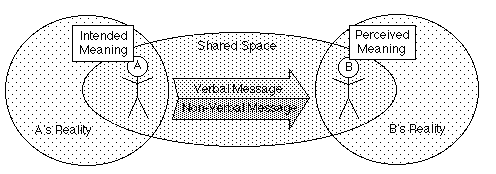
One of the most simple and useful ways of sorting out arguments and communication difficulties is to work on getting clear on what people really were trying to say.
Most conflicts are merely rooted in misunderstandings. Most communications that one takes offense to weren't really meant the way the were received.
Words are so imprecise, even when we think they're not. We don't all attach the same meanings to the same words. A word is just a pointer. What it points to for each of us depends on our experience and our assumptions.
So, the simple exercise to do before you start fighting back is to read back in your own words the meaning you thought you received."What I hear you say is that ...
Is that what you mean?" And very often you'll find that you didn't get it right at all, but the person really meant something else than what you thought.
Even if you get confirmed that the person actually was being a bit mean and trying to put you down, the clarification makes it so much easier to respond appropriately.
The truth tends to free things up. There's a very recognizable feeling of relief that takes place when two or more people suddenly realize that they're understanding each other, and then they actually can look at the subject matter together. Even if it turns out that they don't agree or see things the same way at all. We don't have to agree. But it helps greatly when we understand each other.
For more details, try this Communication Model.
[ Information | 2003-11-26 09:44 | | PermaLink ] More >
|
|
|
|
Excellent article about the "war" on terrorism from Harlan Cleveland. Harlan is an experienced statesman, and I've heard him speak at the World Future Society's conferences. He thinks clearly about things."Terrorism is not a doctrine, like President Harry Truman’s declaration that the United States would protect Greece and Turkey from Soviet takeover. It’s not a purpose, like the postwar recovery of Western Europe assisted by the four-year Marshall Plan. It’s not a deadly disease like AIDS or a chronic condition like poverty, on which metaphorical wars have been declared.
No, terrorism is a tool—“a tool, not an actor,” as Chester A. Crocker, a former US Assistant Secretary of State for Africa, puts it in a perceptive analysis of “failing states” in the current issue of Foreign Affairs.
It’s a tool often used in history. Terrorism is usually violent action, often aimed at a few of the innocent in order to terrify much larger populations. The violence has traditionally been directed, by the weaker and less organized, against the stronger and more “established.” It has often been aimed by people who got there first, against other people who came later to muscle the early-arrivers aside: colonial subjects against imperial powers, people of color against dominant whites." And he goes on to explain very well the self-contradictions inherent in trying to have a war against something like that. And what should be done instead.
[ Politics | 2003-11-26 15:25 | | PermaLink ] More >
|
|
| Tuesday, November 25, 2003 |  |
|
|
|
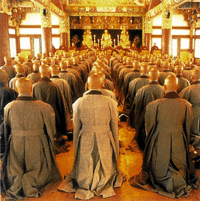 Scotty posts the delightful story of Wu-Ming, a simple Buddhist monk who seemed to demonstrate great wisdom without particularly trying. In the words of Tung-Wang, 898 A.D.: Scotty posts the delightful story of Wu-Ming, a simple Buddhist monk who seemed to demonstrate great wisdom without particularly trying. In the words of Tung-Wang, 898 A.D.:"Though in the course of my lifetime I have encountered many of the most venerable progenitors of the Tathagata's teaching, never have I met one so skilled at awakening others to their intrinsic Buddhahood as this wonderful fool Wu-ming. His spiritual non-sequiturs were as sparks, lighting the flame of illuminating wisdom in the minds of many who engaged him in dialogue.
Once a monk approached Wu-ming and asked in all earnestness, "In the whole universe, what is it that is most wonderful?" Without hesitation Wu-ming stuck a cucumber before the monks face and exclaimed, "There is nothing more wonderful than this!" At that the monk crashed through the dualism of subject and object, "The whole universe is pickled cucumber; a pickled cucumber is the whole universe!" Wu-ming simply chuckled and said, "Stop talking nonsense. A cucumber is a cucumber; the whole universe is the whole universe. What could be more obvious?" The monk, penetrating the perfect phenomenal manifestation of Absolute Truth, clapped his hands and laughed, saying, "Throughout infinite space, everything is deliciously sour!"
On another occasion a monk asked Wu-ming, "The Third Patriarch said, "The Great Way is without difficulty, just cease having preferences." How can you then delight in eating cucumbers, yet refuse to even take one bit of a carrot?" Wu-ming said, "I love cucumbers; I hate carrots!" The monk lurched back as though struck by a thunderbolt. Then laughing and sobbing and dancing about he exclaimed, "Liking cucumbers and hating carrots is without difficulty, just cease preferring the Great Way!"" Ah, life is so simple, if we just stay true to our nature, do what comes natural, and avoid getting lost in abstract complexities.
[ Inspiration | 2003-11-25 05:46 | | PermaLink ] More >
|
|
|
|
 Mentioned by Bushman and others. Go watch The Meatrix. A fabulous little flash movie where Moopheus will show you the real world. First of all it is a very funny and perfectly done takeoff of The Matrix. Secondly, it introduces the issue of the destructiveness of factory farming in meat production, and presents activist resources and alternatives. Thirdly, the movie is a "Free Range Flash Activism Grant". I.e. a design company called Free Range Graphics invited non-profit organizations to apply for the production of a free Flash movie. Not only is that very nice of them, and a powerful tool for activism, but it is of course also an excellent promotion for their company. Something to learn from there. Win-win and support the common good. Mentioned by Bushman and others. Go watch The Meatrix. A fabulous little flash movie where Moopheus will show you the real world. First of all it is a very funny and perfectly done takeoff of The Matrix. Secondly, it introduces the issue of the destructiveness of factory farming in meat production, and presents activist resources and alternatives. Thirdly, the movie is a "Free Range Flash Activism Grant". I.e. a design company called Free Range Graphics invited non-profit organizations to apply for the production of a free Flash movie. Not only is that very nice of them, and a powerful tool for activism, but it is of course also an excellent promotion for their company. Something to learn from there. Win-win and support the common good.
[ Inspiration | 2003-11-25 05:46 | | PermaLink ] More >
|
|
|
|
 Via Smart Mobs, news about Urban Tapestries, which is an experimental project for understanding the social and cultural implications of location-based mobile communications. They have developed a mechanism by which individuals can virtually annotate the urban landscape with personal stories and commentary. Via Smart Mobs, news about Urban Tapestries, which is an experimental project for understanding the social and cultural implications of location-based mobile communications. They have developed a mechanism by which individuals can virtually annotate the urban landscape with personal stories and commentary.Imagine building your own location-based game, such as a treasure hunt or a spy game.
Imagine creating a thread of local resources that would be useful or important to you if you lived in this area. For instance specialist food shops, bookstores, places to learn new things, exercise classes, social services, free concerts and films, public toilets and local dumps.
Imagine creating your own story woven through the area. For instance a romance or crime story, science fiction or horror (English country pursuits)!
Imagine annotating places for local activist campaigns or issues. For instance local pollution and the environment, building developments and regeneration, globalisation and local transport.
Imagine creating your own personal map of Bloomsbury. For instance quiet places to sit, favourite parks, family histories, unhappy memories and bad smells! They are launching a public trial in London in December.
[ Technology | 2003-11-25 10:11 | 0 comments | PermaLink ]
|
|
|
|
Article in Christian Science Monitor about whether college teaches you to think or not.While pondering a problem in a plant biology course at Ohio University one semester, John Withers suddenly realized something unusual was going on: This class was actually requiring him to think.
Thinking is presumed to be the bread and butter of higher education. Beyond simply getting a diploma to land a job that pays well, the promise of sharpening thinking skills still looms as a key reason millions apply to college.
Yet some say there is a remarkable paucity of critical thinking taught at the undergraduate level - even though the need for such skills seems more urgent than ever. And then there some good examples of professors and classes that actualy seem to be doing the right stuff.
Years ago when I frequently was interviewing and hiring computer programmers I noticed that a large percentage of people with computer science degrees had gotten their ability to think and solve real problems completely destroyed, if they had it to begin with. I.e. the majority were unable to write a simple program to solve a simple problem, and unable to even think systematically. Rather they tended towards having a very impressive resume, and an inclination towards having many interesting things to say. But when I actually gave them a test, it was surprising how poorly most people did. Kids fresh out of high school were usually significantly more able to solve a real problem than somebody with a masters degree in computer science.
But if they could both learn about a lot of stuff AND actually develop their ability to be creative and think critically - that would really be something.
[ Information | 2003-11-25 11:48 | | PermaLink ] More >
|
|
| Monday, November 24, 2003 |  |
|
|
|
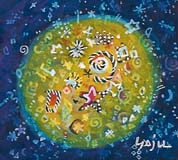 Excellent op-ed piece "Tech Bloom in full flower" by Alex Steffen. Excellent op-ed piece "Tech Bloom in full flower" by Alex Steffen."The conventional wisdom, during the Tech Boom, was that what drove innovation was the lure of giant piles of cash. That idea now rubs shoulders with the Berlin Wall. What makes creative people tingle are interesting problems, the chance to impress their friends and caffeine. Freed from the pursuit of paper millions, geeks are doing what geeks, by nature, really want to be doing: making cool stuff.
Not just making it, but giving it away. Saying the Tech Bloom is not commercially driven is like saying Mother Teresa had an interest in the poor.
Which may be why the media haven't quite gotten the magnitude of what's happening here: It's not about investments. If the Tech Boom had a graven image, it was the bull on Wall Street. The Tech Bloom is more likely to be found dancing around the desert at Burning Man, the annual festival where money is taboo, everything's a gift and creative participation is synonymous with cool." Indeed, it is great news. Very cool things are being developed by people who do it because it needs to be done, because it is fun, because other people like it. Money has very little to do with it. It is unstoppable. Imagine when the whole world works like that.
[ Inspiration | 2003-11-24 05:20 | | PermaLink ] More >
|
|
|
|
Chandler is an open source project envisioned and spearheaded by Mitch Kapor. A very ambitious and well-funded effort, working on bunch of things that really need doing. At the very first glance it might seem like nothing special, just another e-mail, calendar, to-do list kind of program. But it the way it aims and doing things, and how shared it will be that is interesting. See Roger's overview of places to learn more. Like this Compelling Vision.With Chandler, users will be able to organize diverse kinds of information for their own convenience -- not the computer's convenience. Chandler will have a rich ability not only to associate and interconnect items, but also to gather and collect related items in a single place creating a context sensitive "view" of many types of data, mixing-and-matching email, mailing lists, instant messages, appointments, contacts, tasks, free-form notes, blogs, web pages, documents, spreadsheets, slide shows, bookmarks, photos, MP3's, and so on (and on). Data in Chandler is stored on repositories on the user's local machine, on others' machines, and on shared resources such as servers.
This is a very different approach from that of today's common PIMs. For example, users can usually only view a given email message in one specific folder, grouped only with other email messages. In the user-centric world of Chandler, the basis of the ‘relatedness’ of items is completely at the users discretion and is merely facilitated, rather than imposed by the software.
Chandler lets the user keep track of lots of concurrent, ongoing activities. Managing activity extending over time requires the ability to collect just the right sets of related items. Too much information and the user the can't find what's relevant. Too little information and the needed item goes missing. This ability to gather relevant information from disparate sources is at the heart of Chandler's design. A Chandler user could, for example, relate a variety of emails, contacts, documents, and calendar events into an ad-hoc collection related to a specific project.
Chandler will provide unified search over all of the user's information, both on her own personal computer(s) and stored in other Chandler repositories across the network. It will allow searches to be saved for re-use.
Chandler will give non-programming users the ability to customize and extend the program in all sorts of ways, for instance, providing ways to automatically manage complex, asynchronous tasks like organizing a meeting and to automatically respond to events as they arise. I've known for a long time that this is what I would want. Seems obvious. And I've made a few attempts of programming pieces of that, that I've never finished. Nobody else seems to be doing it right. But I bet Chandler will go where it intends to go.
[ Technology | 2003-11-24 05:37 | 0 comments | PermaLink ]
|
|
|
|
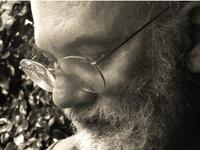 My friend from L.A. Roger Eaton is on a quest. Nothing less than the software that would enable the voice of humanity to be articulated. The wiring that might allow us to pool our thoughts and have our collective mind express what we think and feel and what we want to do. So we can then better take action and set our world straight. Not exactly an easy project, but somebody needs to do it. My friend from L.A. Roger Eaton is on a quest. Nothing less than the software that would enable the voice of humanity to be articulated. The wiring that might allow us to pool our thoughts and have our collective mind express what we think and feel and what we want to do. So we can then better take action and set our world straight. Not exactly an easy project, but somebody needs to do it.
Luckily there are many other individuals and groups and projects and tools that fit in with that, and which one way another works towards it. Nobody can do it alone. Roger is now methodically going through what is out there that might relate, and providing good overviews and analysis of what he finds. Read about it in his blog
[ Technology | 2003-11-24 05:55 | | PermaLink ] More >
|
|
|
|
I'm having a little bit of a conflict with myself. See, I believe that the philosophy and practice behind open source software is one of the most powerful and hopeful potentials in the world. Individuals, small teams, large networks doing good things and sharing the results. For a variety of reasons like: it needed to be done; it is fun; other people think you're cool; knowing it is the best way to do things; or just to scratch one's personal itch. The point is that money and greed has relatively little to do with it. But monetary rewards might very well follow from this approach. It all makes sense that the best way of being valuable, and being considered valuable in the world, is to get something useful into as many hands as possible, and making as few barriers as possible to further creativity and improvement.
And, now, one of the roles I've most often played is that of a programmer. I've written a lot of code, a lot of software, some of which has been very useful to others. I've written chat rooms, bulletin boards, calendars, task managers, weblogs, member databases, mailing list managers, website authoring programs, shopping carts, content managers, image manipulation, DNS administration, server monitoring, and probably much more I'm forgetting.
But I've never made a program open source. I.e. I've never created a page that you could download a program from, with installation instructions and documentation. And I've never made any meaningful way for others to contribute to the programs I created. Why not? Well, in part it might be that I still have the remainder of a belief that I somehow would be more likely to be paid if I kept the software close to my chest. Despite that a lot of this was given away freely to use on my server. But, even more, it is probably that I'm a perfectionist and my projects are usually a little too ambitious. Meaning, they were never quite finished to my own satisfaction, so I didn't feel they were ready for prime time. And I had usually made some shortcuts that meant that the programs worked alright when they stayed on my server, and when I could fix any problems that popped up. It takes some additional effort to make software solid and generic enough that somebody can just download it and use it in a somewhat different environment, maybe in ways I hadn't foreseen.
Most successful open source projects start off by doing one relatively limited thing fairly well. They might grow from there, sometimes tremendously, but they usually start by providing a small amount of well-defined functions. I know that very well. But still, I usually end up trying to include everything and the kitchen sink in my plan, so that even if I do something relatively limited, it has hooks into a bigger master plan, which I usually never quite finish. And therefore the individual pieces might not be easy to give away.
I'm considering changing my mind, and picking one of my projects as something I can make limited and solid enough that I can actually export it to other people. Best candidate right now seems to be a program I wrote to easily create databases, which automatically come with online forms submission, admin area, searches, group e-mailing etc. I wrote it first when I noticed that many of the little website database jobs I got were boringly similar. There are some forms on a website people can submit stuff at, and then we keep it in a database, which we need to manage in an admin area, and we might want to send e-mails to people who signed up, etc. That can easily be a few days of work each time. Where really it could be done in 1/2 hour if you didn't have to re-do the same repetitive work.
[ Programming | 2003-11-24 07:57 | | PermaLink ] More >
|
|
<< Newer stories Page: 1 ... 48 49 50 51 52 ... 97 Older stories >> |
|

This is a collage of things that catch my eye, things that need to be said, and stuff I really care about
TRUTH
BEAUTY
FREEDOM
LOVE
TECHNOLOGY
|
| Mon | Tue | Wed | Thu | Fri | Sat | Sun |
|---|
|
|
|
|
|
|
1 |
| 2 |
3 |
4 |
5 |
6 |
7 |
8 |
| 9 |
10 |
11 |
12 |
13 |
14 |
15 |
| 16 |
17 |
18 |
19 |
20 |
21 |
22 |
| 23 |
24 |
25 |
26 |
27 |
28 |
|
|




